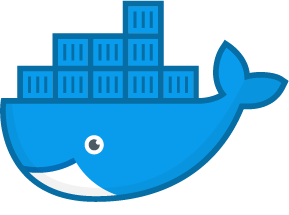Implementing MacVLAN
Tested Infrastructure
| Platform | Number of Instance | Reading Time |
|---|---|---|
| Linux VM/Bare Metal | 1 | 5 min |
Pre-requisite
- A Virtual Machine running on ESXi or Virtualbox
- Linux System(or Bare Metal OS)
** Please remember MacVLAN is not supported on Cloud Platform
Assume you have a clean Docker Host system(VM or Bare Metal System) with just 3 networks available – bridge, host and null
root@ubuntu:~# docker network ls
NETWORK ID NAME DRIVER SCOPE
871f1f745cc4 bridge bridge local
113bf063604d host host local
2c510f91a22d none null local
root@ubuntu:~#
The Network Configuration is quite simple. It has eth0 and eth1 interface. I will just use eth0.
root@ubuntu:~# ifconfig
docker0 Link encap:Ethernet HWaddr 02:42:7d:83:13:8e
inet addr:172.17.0.1 Bcast:172.17.255.255 Mask:255.255.0.0
UP BROADCAST MULTICAST MTU:1500 Metric:1
RX packets:0 errors:0 dropped:0 overruns:0 frame:0
TX packets:0 errors:0 dropped:0 overruns:0 carrier:0
collisions:0 txqueuelen:0
RX bytes:0 (0.0 B) TX bytes:0 (0.0 B)
eth0 Link encap:Ethernet HWaddr fe:05:ce:a1:2d:5d
inet addr:100.98.26.43 Bcast:100.98.26.255 Mask:255.255.255.0
inet6 addr: fe80::fc05:ceff:fea1:2d5d/64 Scope:Link
UP BROADCAST RUNNING MULTICAST MTU:1500 Metric:1
RX packets:923700 errors:0 dropped:367 overruns:0 frame:0
TX packets:56656 errors:0 dropped:0 overruns:0 carrier:0
collisions:0 txqueuelen:1000
RX bytes:150640769 (150.6 MB) TX bytes:5125449 (5.1 MB)
Interrupt:31 Memory:ac000000-ac7fffff
lo Link encap:Local Loopback
inet addr:127.0.0.1 Mask:255.0.0.0
inet6 addr: ::1/128 Scope:Host
UP LOOPBACK RUNNING MTU:65536 Metric:1
RX packets:45 errors:0 dropped:0 overruns:0 frame:0
TX packets:45 errors:0 dropped:0 overruns:0 carrier:0
collisions:0 txqueuelen:0
RX bytes:3816 (3.8 KB) TX bytes:3816 (3.8 KB)
- Creating MacVLAN network on top of eth0.
docker network create -d macvlan --subnet=100.98.26.43/24 --gateway=100.98.26.1 -o parent=eth0 pub_net
- Verifying MacVLAN network
root@ubuntu:~# docker network ls
NETWORK ID NAME DRIVER SCOPE
871f1f745cc4 bridge bridge local
113bf063604d host host local
2c510f91a22d none null local
bed75b16aab8 pub_net macvlan local
root@ubuntu:~#
- Let us create a sample Docker Image and assign statics IP(ensure that it is from free pool)
root@ubuntu:~# docker run --net=pub_net --ip=100.98.26.47 -itd alpine /bin/sh
Unable to find image 'alpine:latest' locally
latest: Pulling from library/alpine
ff3a5c916c92: Pull complete
Digest: sha256:e1871801d30885a610511c867de0d6baca7ed4e6a2573d506bbec7fd3b03873f
Status: Downloaded newer image for alpine:latest
493a9566c31c15b1a19855f44ef914e7979b46defde55ac6ee9d7db6c9b620e0
** Important Point: When using macvlan, you cannot ping or communicate with the default namespace IP address. For example, if you create a container and try to ping the Docker host’s eth0, it will not work. That traffic is explicitly filtered by the kernel modules themselves to offer additional provider isolation and security
How to enable this communication
It’s simple. Just run the below command:
Example: ip link add mac0 link $PARENTDEV type macvlan mode bridge
So, in our case, it will be:
ip link add mac0 link eth0 type macvlan mode bridge
ip addr add 100.98.26.38/24 dev mac0
ifconfig mac0 up
Let us try creating container and pinging:
root@ubuntu:~# docker run --net=pub_net -d --ip=100.98.26.53 -p 81:80 nginx
10146a39d7d8839b670fc5666950c0e265037105e61b0382575466cc62d34824
root@ubuntu:~# ping 100.98.26.53
PING 100.98.26.53 (100.98.26.53) 56(84) bytes of data.
64 bytes from 100.98.26.53: icmp_seq=1 ttl=64 time=1.00 ms
64 bytes from 100.98.26.53: icmp_seq=2 ttl=64 time=0.501 ms
